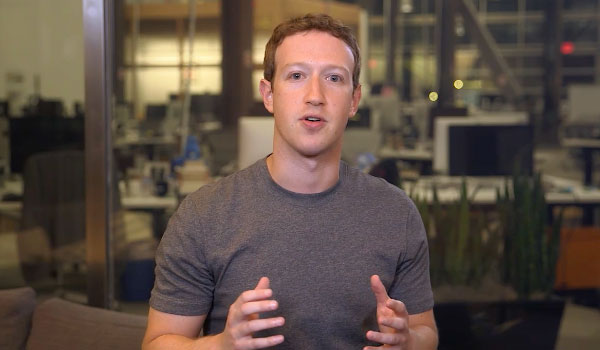Facebook CEO Mark Zuckerberg on Monday defended his company’s downsized version of the Internet, called “Free Basics,” which is offered in developing nations around the world.
“In every society, there are certain basic services that are so important for people’s wellbeing that we expect everyone to be able to access them freely,” he wrote in theTimes of India, citing public libraries, hospitals and schools as examples.
“That’s why everyone also deserves access to free basic Internet services,” Zuckerberg added.
Net Neutrality Trade-Off
Facebook launched Free Basics, a set of basic Internet services that is offered in more than 30 countries and has garnered some 15 million users over the last year, because everyone should have access to basic Internet services, he maintained.
However, the service has come under some criticism, especially in India, where last week the country’s telecommunications industry regulator asked the mobile network set to partner with Facebook on Free Basics to put its efforts on hold.
Among the criticisms of Free Basics is that it stifles innovation by limiting choice, undermines net neutrality by favoring some content providers over others and confines users within a walled garden.
There is a trade-off between net neutrality and allowing more people to access the Internet, acknowledged Jan Dawson, chief analyst atJackdaw Research.
“There’s no doubt the plan is non-neutral, but it does get more people online,” he told TechNewsWorld.
“Facebook would argue that the benefits outweigh the disadvantages, but the objection here is that many people’s first experience with the Internet will be Facebook-flavored, which gives the company an unfair advantage,” Dawson continued.
Marketing Initiative
Although Free Basics has introduced millions of new users to the Internet, doubts linger about Facebook’s intentions.
“There’s a suspicion that Facebook has ulterior motives,” said Brian Blau, a research director atGartner.
“They’re in the business of making money,” he told TechNewsWorld. “They’ll have to do that to pay for this, and they haven’t come out and said how that’s going to work in the long term.”
“My assumption with Mark Zuckerberg is everything he does is a marketing initiative,” said John Carroll, a mass communications professor atBoston University.
“If there’s some kind of side benefit for other people, that’s fine with him,” he told TechNewsWorld.
Facebook as Internet
Zuckerberg is all about collecting information and then selling it to marketers, Carroll noted.
“This is a market he’s looking at — the undeveloped world — that he can gather up and do the same thing with them that he’d done with the other billion Facebook users,” he said.
By creating a walled garden, Free Basics advances one of Zuckerberg’s goals for Facebook. “One of Zuckerberg’s objectives has long been for Facebook to be the Internet for people,” Carroll noted.
“What he wants to do is preempt movement away from Facebook to other apps and other platforms and contain users as much as possible within the Facebook walls,” he said.
“With Free Basics, he’s going to bring in certain content providers that he picks and chooses. In that way, he creates the entire environment of digital media for all these people who wouldn’t otherwise have access,” Carroll continued.
Springboard to Wider Net
Free Basics is a springboard to the Internet for users, Zuckerberg argued.
“Half the people who use Free Basics to go online for the first time pay to access the full Internet within 30 days,” he wrote.
There is one thing, though, that even Zuckerberg’s critics would agree with him about.
“Internet access has become a critical differentiator in terms of societal development and competitiveness,” Jim McGregor, principal analyst atTirias Research, told TechNewsWorld.
It also can affect the lives of individuals.
“Lack of access to the Internet can have a negative impact on things people are trying to do to improve their lives in meaningful ways,” Aaron Smith, associate director of research at thePew Research Center, told TechNewsWorld.






















































I disagree that Internet is the most important thing to developing countries. They are lacking in so many ways in infrastructure that internet is not so important as running water, sewer, and electricity. The problem is that Mr. Zuckerberg has little real experience in anything but running a social web site. Why we even think he knows anything about what developing countries need is beyond me? My thoughts are this, let’s think about educating, improving infrastructure, building roads, bridges, developing private enterprise.Internet is not a necessity for education. As much as internet lovers think it is. Technology in the classroom has yet to show any kind of learning improvement over traditional books. In many results technology is more of a expense, a distraction, and does not improve absorption of material. My advice to Zuckerberg is stop acting as if your anymore then a collage drop out who convinced everyone they need a web site to share their lives.